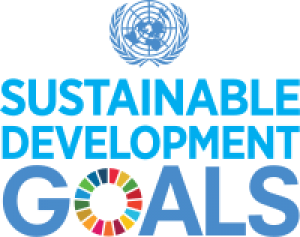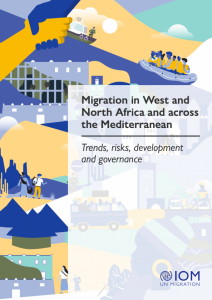Policymaking and data collection: a complex relationship
An analysis of transnational efforts to improve data on migration in West and North Africa and across the Mediterranean and related policymaking processes in the period 2005—2021 reveals that policy approaches to migration data and evidence and their use for policy and programmatic purposes have evolved over time, in parallel with shifting political priorities and relations between European and African states and institutions. Evolving political priorities and international relations have had a direct impact on the types of data activities financed - such as specific data collection initiatives or regional migration observatories. They have also had an impact on thematic areas of focus, notably from development- towards security-oriented aspects of migration. For example, in the years 2005—2014, policy documents primarily highlighted the need to improve data on migrants’ contributions to development; in 2015—2017, however, calls to improve evidence on the “root causes” of irregular migration and forced displacement prevailed over generic references to data, in line with greater political and public attention to irregular migration in Europe in those years.
The recommended use of migration data and evidence also evolved over time, ranging from broader objectives, such as improving knowledge, to more specific objectives, usually revolving around informing migration policymaking. However, recommendations on how to use evidence to inform policymaking and programming were largely still missing in the African and European policy documents we analysed. The same applies to more concrete guidance on ensuring effective dialogue between data and policy stakeholders. As a result, the use of evidence to inform policymaking and the form it takes remain discretionary, potentially allowing for greater inequalities in the negotiation of policy measures between Africa and Europe.
Overall, the different interests and political and economic positions of African and European actors involved, as well as their uneven abilities to fund projects and influence negotiations, have shaped how migration has been framed, studied, measured, and interpreted, and on how the resulting evidence has been used (or not) to inform policy and programmatic approaches across countries. The greatest share of investments in evidence on African migration in recent years has come from European-based actors and, consequently, it has disproportionately focused on migration from Africa to Europe. This reflected a primary focus on “understanding the root causes of migration” rather than developmental processes related to the much more significant intraregional African migration and its consequences for regional integration and sustainable development in Africa. Compounded by the underrepresentation of migrants and researchers from African countries and its impact on the production of knowledge about migration, this has meant that negative narratives have dominated cross- Mediterranean and Africa–Europe migration, while hiding much broader and historical patterns of migration largely linked to work opportunities and income diversification.
Migration data and policy: What next?
Data and evidence are essential to inform comprehensive and timely policy measures and programmes that can help realize the beneficial outcomes of migration, while at the same time mitigating its risks and challenges. Yet, a stark contrast remains between the growing explicit acknowledgment of the importance of reliable and timely data and evidence and the persistent difficulty in applying available statistics and knowledge to policy responses. At times, an outright decoupling between evidence and policy sheds light on the essentially political nature of the evidence. Therefore, dissecting the meaning of “use of data for evidence-based policies” will be critical to fully implement objective 1 of the Global Compact for Migration (GCM). The question of what evidence is or is not being put to good use will furthermore need to be assessed on a range of dimensions including consistency with other policy and developmental outcomes at the national, regional, and cross- regional levels.
A diversification of investments and efforts could help ensure a more comprehensive evidence base on migration. The fact that the greatest share of investments on African migration has been made by European-based actors has contributed to a disproportionate focus on irregular migration from Africa to Europe, with less attention given to intra-African migration and its key role for regional integration and development. The creation of migration observatories and research centers based in Africa, as well as a greater inclusion of voices from African experts in the production of evidence on migration on and from the continent, will be essential to achieving a more comprehensive picture and rectifying negative narratives.
There is also a need to collect examples of successful uses of data for positive, forward- looking, and sustainable policy responses on migration from and in Africa. Building a pool of good practices in the use of migration data for policy across different contexts could incentivize more policy innovation and push for greater creativity in the way that evidence is conceived and produced in the first place.
[1] Schöfberger, I. and Rango, M. (2023): What Data for Evidence-Informed Migration Policies in Africa and Europe? In: Immigrant Lives. Edited by: Edward Shizha and Edward Makwarimba, Oxford University Press. Oxford University Press. DOI: 10.1093/oso/9780197687307.003.0012













